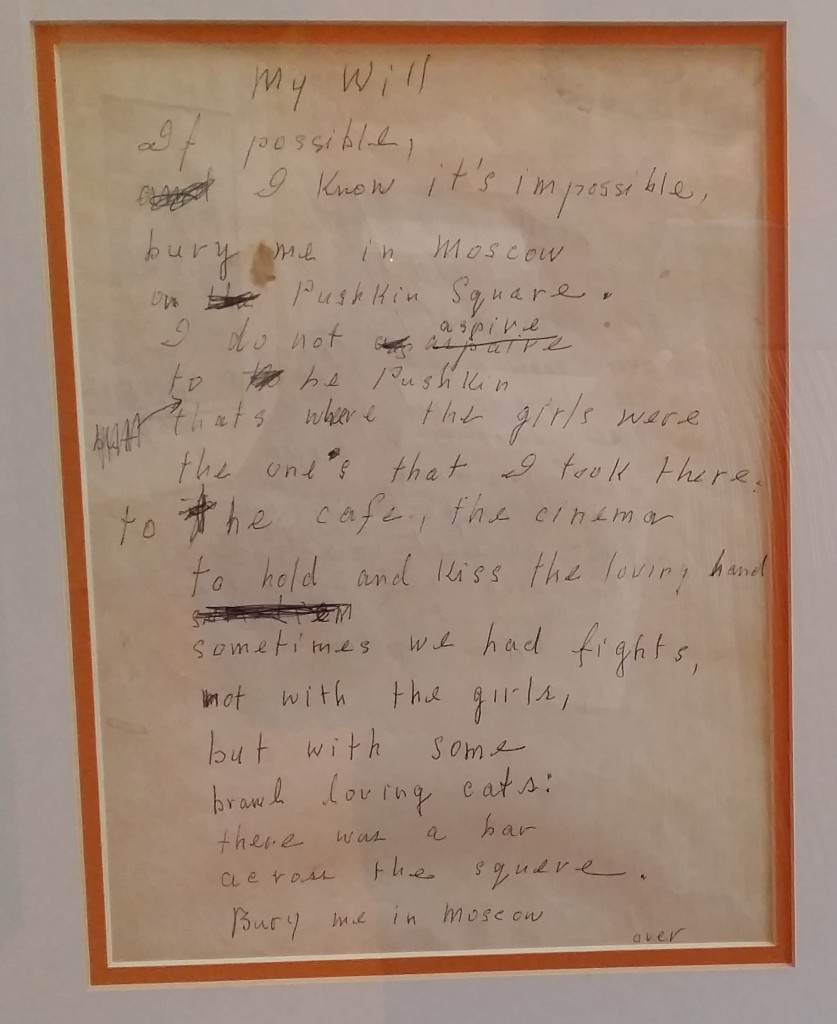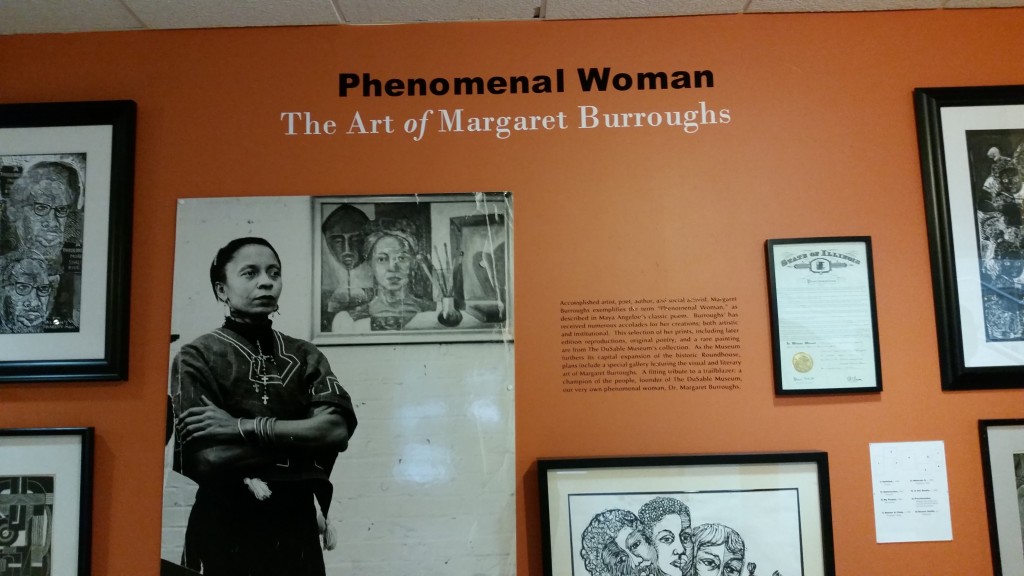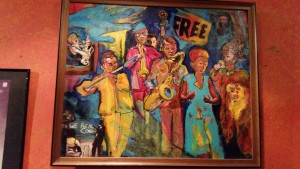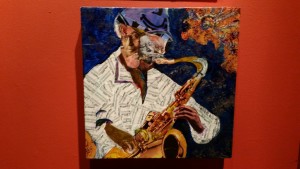“My Will” A Poem by Dr. Margaret Burroughs OR Intellectualizing Vodka
This January Term, I am teaching a class titled “Queer Bronzeville: Intersectional Identities in 20th Century Black Chicago” which I was inspired to develop because of the OutHistory.org exhibit on Queer Bronzeville by Tristan Cabello, who is working on a book based on this research. We are almost at the end of the term and are spending five days in Chicago. The first full day here was incredible, capped as it was by listening to black same gender loving people in the community tell their diverse stories.
We started the day at The DuSable Museum of African American History. While it is not as updated or large as Detroit’s Charles H. Wright African American Museum or the Cincinnati National Underground Railroad Freedom Center, or as focused and extensive as the Birmingham Civil Rights Institute. It had a wonderful new exhibit that highlighted the Association for the Advancement of Creative Musicians, a group of Afro-Centric Chicago musicians in the mid-20th century (see pics below). But what I wanted to share with you today was a poem tucked downstairs in a corner by the co-founder of the museum, Dr. Margaret Burroughs (1915-2010). Her PhD was in Art History and she was a practicing artist and a poet. Her most famous poem is “What Shall I Tell My Children Who are Black?” Here she is reading it shortly before her death:
And here is the poem I wanted to bring to your attention. As I just saw it today and it was a day filled to the brim with activities, I have no more information for you than this. There was no placard next to the poem to identify the date or context of its writing. (I will note that I was disappointed to spot many typos on the DuSable exhibit descriptions and found a distinct lack of information accompanying some of the items in the exhibits, like this poem.)
Original manuscript:

Transcript of poem:
My questions: When was this written? When she go to Moscow? Was she treated like most of the other black Americans who went (i.e., like a minor-celebrity)? Is the academic work on her as sparse as Wikipedia claims (forgive me for resorting to that page)? And is this about same-gender love (it can be that, even while we acknowledge that her co-founder was her husband)?
And let’s all “intellectualize vodka” together one day!!
Here are some photos from the Association for the Advancement of Creative Musicians exhibit. There was no label for the paintings, so I don’t know the artist or the date. The medium was beautiful–paint, collage, maybe even marker.
Updated after Keisha’s comment below:
The museum exhibited four of her poems. Here is one of the others:
Copyright © AAIHS. May not be reprinted without permission.






This is lovely, Lauren! Your class sounds amazing and I think it’s wonderful that your students have this unique opportunity to learn more about these brilliant black writers from Chicago. The poem, “My Will,” is lovely–the theme of black internationalism is so evident. It would make a great teaching tool. The phrase, “Bury me in Moscow” captures the sentiments of so many black women radicals who envisioned the Soviet Union as a model and symbol for black liberation. I suspect this was written during the 1940s or 1950s. Margaret Burroughs certainly supported leftist politics during this period and I can easily imagine her writing this poem around this time. Plus, she was one of the featured writers in the IWO’s DuSable 751 Lodge (established by Louise Thompson Patterson in the early 1940s). Did you see other similar poems at the museum–ones capturing the theme of black internationalism and/or referencing the Soviet Union? This is such a great find!
Thank you Keisha! They only had four other poems displayed and they were not as revealing of her politics.
I also got the sense that it was a 1940s or 1950s poem.
I photographed one other poem and if I can’t get it to post in a comment, I’ll add it at the end of the post.
Some systematic testimonials, nonetheless, have demonstrated the effects of acupuncture more than sham
remedy in studies exactly where individuals are
unaware regardless of whether they are having genuine acupuncture or sham therapy.